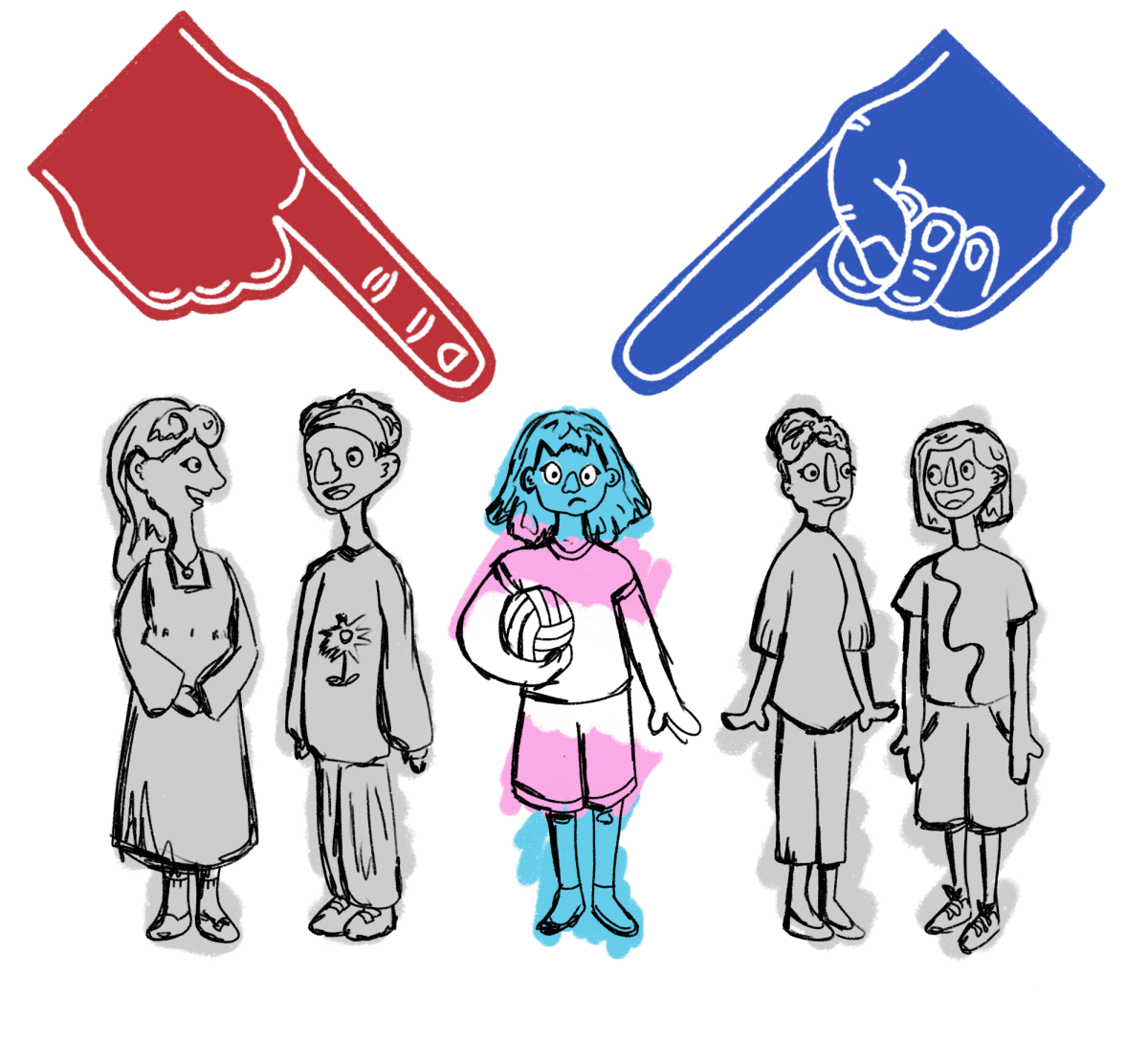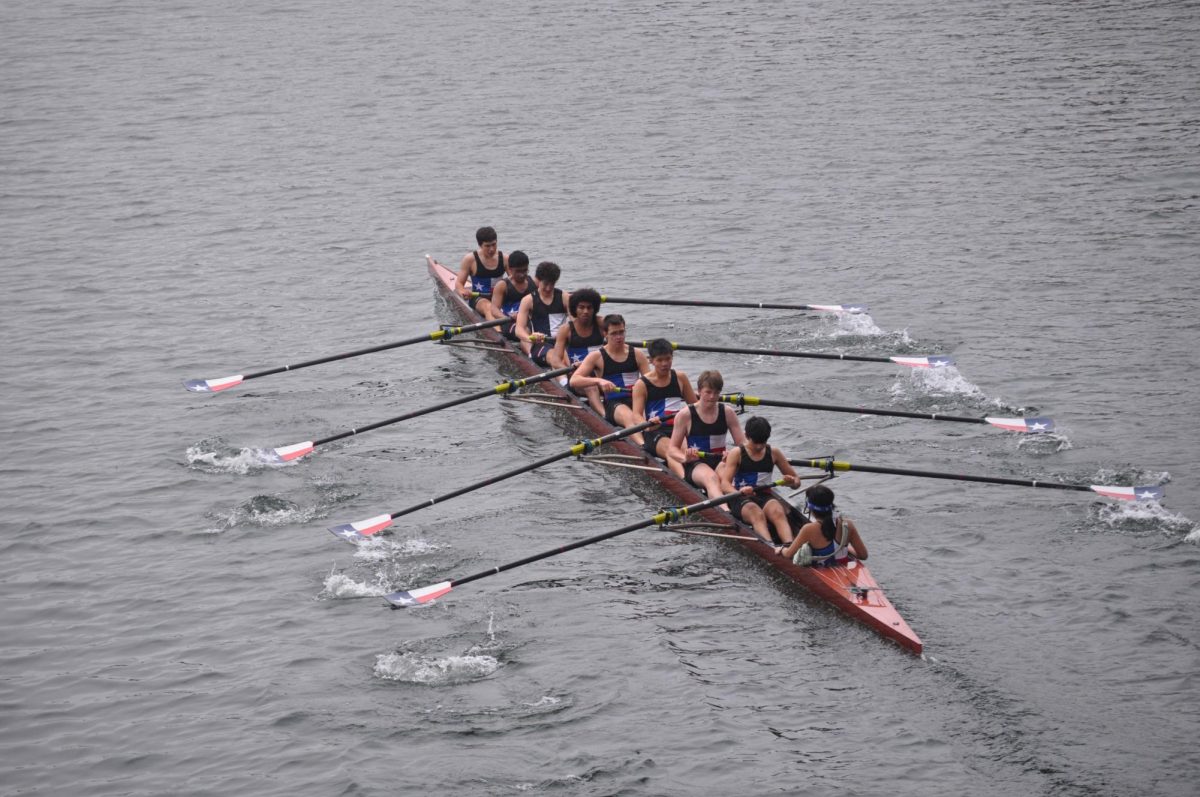During the 2024 election season, transgender athletes became a topic of contention between President Trump and former Vice President Harris. This dispute made its way through political debates as Republicans across the country targeted transgender athletes in their verbal messages and political advertising. The November elections have swept these politicians and their promises into office nationwide.
On Feb. 5, President Trump signed an executive order forbidding transgender women from competing in the women’s category of any sport, vowing to end funding to any programs or schools that allowed them to do so. On Feb. 6, the National Collegiate Athletic Association (NCAA), the regulatory body of college athletics in the U.S., banned transgender female athletes in accordance with this order.
Carey Elmring Norland is a transgender non-binary athlete who competes in mounted horse archery in Oregon. They believe transgender Americans have been villainized in the eyes of their cisgender counterparts.
“The first thing we have to be aware of is there really aren’t that many transgender athletes,” Norland said. “I think a lot of it is because it’s been politicized. Every election, there’s a big issue topic that people will talk about a lot, and they’ll try to fearmonger around it so that they can freak people out and then get them to vote for a certain candidate because they’re worried or afraid.”
According to CNN, NCAA president Charlie Baker reported there were 10 transgender athletes competing in the organization in 2024. Their small number allows individual cases to receive nationwide attention. One such focal point was Andraya Yearwood, currently a transgender graduate student at Columbia University. She competed in the women’s category of track during high school, finishing second at the state 100-meter dash in 2017, attracting massive media attention as well as conservative backlash.
“My team was very supportive, my school as well, and maybe my whole town was very supportive of me running track,” Yearwood said. “Initially, the backlash came primarily on media, people were making YouTube videos, and then some articles had come out about me running and how I should not be running. And then I remember at one track meet during outdoor season my sophomore year of high school, there had been petitions going around. People were signing petitions trying to get me to not run anymore.”
According to the Williams Institute, the amount of Americans who openly identify as transgender has yet to reach 1%. In a way, Yearwood believes the small number of transgender athletes actually contributes to their unpopularity.
“I think that a lot of it has to do with the unknown,” Yearwood said. “There are a lot of things, particularly regarding biology, gender and sex in general, that the larger public and the Republicans themselves just may not be as versed in. Seeing trans people shake up or disrupt binary standards that are already in place makes people fearful.”
In the past, Democrats stood up to Republicans’ messaging concerning trans people and athletes. According to the Washington Blade, President Biden pledged to defend transgender children’s rights during his 2020 presidential campaign.
Now, however, PBS reports that the Democratic Party seems to be avoiding the issue. Travis County GOP Communications Director Andy Hogue believes they have recognized the diminishing political returns of endorsing this agenda. He thinks public support has turned against their cause, supported by a 2025 Pew Research Center poll that reported 66% of American adults are in favor of requiring trans athletes to compete on teams according to their sex at birth.
“I’ve never been a big sports aficionado… but I do understand there are concerns about there being advantages genetically between males and females,” Hogue said. “If an underperforming male comes into a women’s team, he dominates, Why should that be any different for somebody that has a transgender orientation? It shouldn’t be just because your feelings are different. It ought to be separated because of the way it was originally intended.”
The constitutionality of executive orders relies on them executing existing laws. Trump’s order was technically constitutional because it interpreted an existing piece of federal legislation, Title IX, to mean that transgender women would make women’s sports unfair by participating in them. Enacted in 1972, Title IX prohibits discrimination based on sex in educational institutions that receive funding from the government.
“Women’s sports were originally intended to give women a chance to compete among biologically similar people,” Hogue said. “And it’s not fair to put males in that category for that reason alone. So if we’re going to allow transgender male athletes in women’s sports, then it might as well just get rid of women’s sports entirely.”
Hogue believes the issue can be expanded to the issue of an overly powerful government, which Republicans have long opposed. By putting these decisions into the government’s hands, he says, one side will always feel they have been wronged, whereas a private entity can regulate themselves and those who chose to be part of it.
“If my Optimist league wanted to have a baseball league that had transgender and non-transgender players, that would be my prerogative. It might be very successful,” Hogue said. “Maybe it’s a matter of that we’ve wrapped up so much of American life into government control, that most of our schools are public schools, most of our teams are subsidized by local governments at some level… If we were to consider it from a free market perspective, that might change the whole entire argument.”






